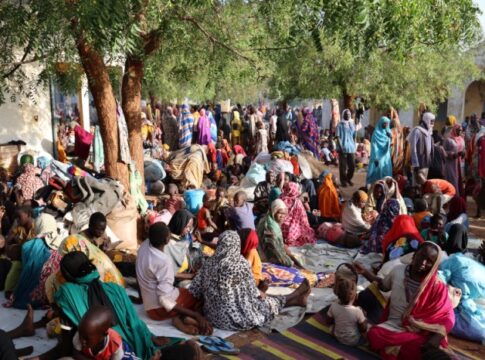Sudan is currently grappling with a multifaceted humanitarian crisis that continues to deteriorate each day. Hunger, cholera outbreaks, human rights violations, and mass dis placement are the grim realities facing millions of Sudanese citizens, exacerbated by the ongoing war. The UN
announced in April 2024 that the conflict has killed more than 14,000 people, injured 33,000 others and left half the population around 25 million people in need of humanitarian assistance.
Hunger in Sudan is not a new phenomenon. Historically, the country has endured multiple famines, primarily due to mismanagement of its rich and unique land resources. Despite its agricultural potential, Sudan has struggled to feed its population, often relying on international aid while paradoxically exporting grains.
The current war has magnified this existing problem. The conflict disrupts farming activities, making it nearly impossible for farmers to plant or harvest crops. Supply chains are broken, and food markets are either closed or too dangerous to reach. As a result, food scar city has reached unprecedented levels, pushing millions to the brink of starvation.
As if the hunger situation wasn’t dire enough, Sudan is also facing a severe cholera outbreak. The ongoing conflict has devastated healthcare infrastructure, leaving hospitals and clinics understaffed and under equipped. Clean water is a luxury, and sanitation facilities are almost non-existent in many areas. These conditions are a breeding ground for cholera, which spreads rapidly and lethally in such environments.
The war has also led to wide spread human rights violations. Reports of extrajudicial killings, torture, and sexual violence are alarmingly frequent. Both sides of the conflict are accused of
targeting civilians, creating an atmosphere of fear and insecurity. The war has also led to wide spread human rights violations. Reports of extrajudicial killings, torture, and sexual violence are alarmingly frequent. Both sides of the conflict are accused of targeting civilians, creating an atmosphere of fear and insecurity.
The conflict has forced millions of Sudanese to flee their homes, seeking refuge in safer regions within the country or in neighboring nations. Camps for internally dis placed persons (IDPs) are overcrowded and under-resourced, making life incredibly challenging for those who end up there. The international community is struggling to provide adequate support, and the prospects for these displaced individuals remain bleak.
Addressing these complex problems requires a double faceted approach:
- “Humanitarian Aid”: Immediate international assistance is crucial. Food, medical supplies, and clean water must be delivered to affected areas as quickly as possible.
- “Ceasefire and Peace Talks”: Both sides of the conflict need to come to the negotiating table. A ceasefire is essential to allow humanitarian aid to reach those in need and to start rebuilding the nation.
The situation in Sudan is dire, but not without hope. With concerted effort from both local and international actors, there is a path forward. Addressing the immediate humanitarian needs while working towards long-term stability and prosperity is the only way to ensure that the people of Sudan can look forward to a brighter future.


